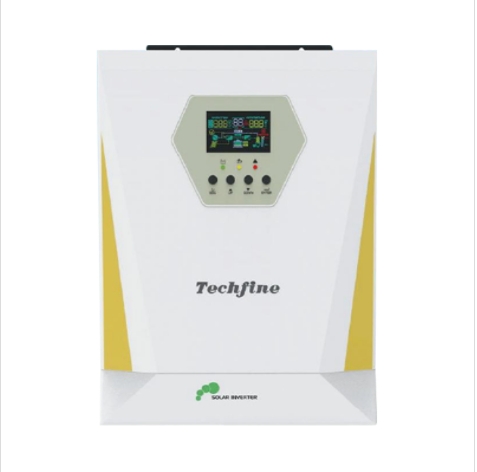
-
[email protected]

-
Building 1, No. 21 Shengfa Road, Lucheng District, Wenzhou, Zhejiang, China


In the expanding realm of solar energy, the solar inverter has emerged as a pivotal component, ensuring the seamless conversion of solar power into usable electricity. As the demand for renewable energy solutions grows, solar inverters are playing a crucial role in big the efficiency and reliability of solar power systems. These devices are essential for both residential and commercial installations, bridging the gap between solar panels and the electrical grid.
A solar inverter is a device that converts the direct current (DC) generated by solar panels into alternating current (AC), which is the standard form of electricity used in homes and businesses. This conversion process is vital because lots of electrical appliances and the power grid operate on AC. Solar inverters not only facilitate this conversion but also optimize the performance of the entire solar power system, ensuring that the big amount of energy is captured and utilized.
One of the primary functions of a solar inverter is to promote the energy output from solar panels. Through a process known as big power point tracking (MPPT), solar inverters continuously monitor and adjust the voltage and current from the solar panels to ensure they operate at their peak efficiency. This feature is particularly important because the output of solar panels can vary depending on factors such as temperature, shading, and the angle of the sun. By optimizing the power output, solar inverters help to ensure that the system remains efficient throughout the day and under different weather conditions.
Another significant advantage of solar inverters is their ability to provide real-time monitoring and data analysis. Many modern solar inverters come equipped with advanced monitoring systems that allow users to track the performance of their solar panels and the overall system efficiency. This data can be accessed via web portals or mobile apps, providing valuable insights into energy production and consumption patterns. This information can help users make informed decisions about their energy usage and identify any potential issues with the system.
Solar inverters also play a crucial role in ensuring the safety and reliability of solar power systems. They are designed to shut down automatically in case of a grid failure or other abnormal conditions, preventing any potential damage to the system or risk to personnel. Additionally, solar inverters can help to stabilize the electrical grid by providing grid-tied support, which ensures that the power fed into the grid is of high quality and consistent.
The market for solar inverters is experiencing rapid growth, driven by the increasing adoption of solar energy worldwide. As more households and businesses install solar panels, the demand for efficient and reliable inverters continues to rise. Future developments in solar inverter technology are likely to focus on further enhancing their efficiency, monitoring capabilities, and integration with smart grid systems.
Solar inverters are the heart of modern solar power systems, ensuring the efficient conversion and utilization of solar energy. With features such as big power point tracking, real-time monitoring, and advanced safety mechanisms, solar inverters play a crucial role in big the benefits of solar power. As technology continues to advance and the demand for renewable energy grows, solar inverters will remain a vital component in the global transition to a more sustainable and efficient energy future. Whether for residential or commercial use, solar inverters are essential in harnessing the full potential of solar energy.
Your email address will not be published. Required field are marked*
